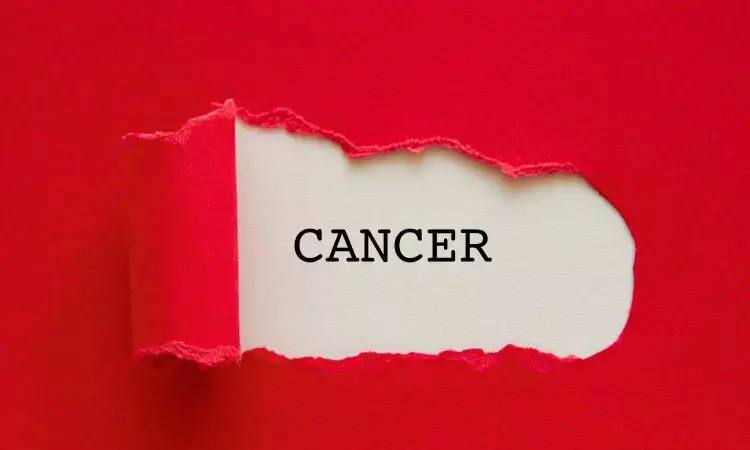- Home
- Medical news & Guidelines
- Anesthesiology
- Cardiology and CTVS
- Critical Care
- Dentistry
- Dermatology
- Diabetes and Endocrinology
- ENT
- Gastroenterology
- Medicine
- Nephrology
- Neurology
- Obstretics-Gynaecology
- Oncology
- Ophthalmology
- Orthopaedics
- Pediatrics-Neonatology
- Psychiatry
- Pulmonology
- Radiology
- Surgery
- Urology
- Laboratory Medicine
- Diet
- Nursing
- Paramedical
- Physiotherapy
- Health news
- Fact Check
- Bone Health Fact Check
- Brain Health Fact Check
- Cancer Related Fact Check
- Child Care Fact Check
- Dental and oral health fact check
- Diabetes and metabolic health fact check
- Diet and Nutrition Fact Check
- Eye and ENT Care Fact Check
- Fitness fact check
- Gut health fact check
- Heart health fact check
- Kidney health fact check
- Medical education fact check
- Men's health fact check
- Respiratory fact check
- Skin and hair care fact check
- Vaccine and Immunization fact check
- Women's health fact check
- AYUSH
- State News
- Andaman and Nicobar Islands
- Andhra Pradesh
- Arunachal Pradesh
- Assam
- Bihar
- Chandigarh
- Chattisgarh
- Dadra and Nagar Haveli
- Daman and Diu
- Delhi
- Goa
- Gujarat
- Haryana
- Himachal Pradesh
- Jammu & Kashmir
- Jharkhand
- Karnataka
- Kerala
- Ladakh
- Lakshadweep
- Madhya Pradesh
- Maharashtra
- Manipur
- Meghalaya
- Mizoram
- Nagaland
- Odisha
- Puducherry
- Punjab
- Rajasthan
- Sikkim
- Tamil Nadu
- Telangana
- Tripura
- Uttar Pradesh
- Uttrakhand
- West Bengal
- Medical Education
- Industry
What are recent trends in opioid prescribing for patients with cancer?

A recent analysis reveals a modest decline from 2016 to 2020 in new and additional opioid prescriptions for patients with cancer. Among those patients with metastatic cancer, prescribing remained stable for those reporting any pain and declined steeply for those reporting no pain. The findings are published by Wiley online in CANCER, a peer-reviewed journal of the American Cancer Society.
In response to the opioid crisis, public health efforts have sought to enact policies and regulations to reduce inappropriate opioid prescribing and prevent unsafe opioid use, including adverse outcomes such as opioid use disorder and opioid overdose. However, such efforts could unintentionally reduce access to opioids for patients with cancer, leading to under-treatment of cancer-related pain.
To assess trends in opioid prescribing for patients with cancer, investigators analyzed data on adults who had not previously been prescribed opioids and were newly diagnosed with cancer in 2016–2020 in a large Connecticut health system. New opioid prescriptions were defined as those given in the first 6 months following diagnosis, and additional prescriptions were defined as those given in the first 6 months following diagnosis and in months 7–9 after diagnosis.
In the study of 10,232 patients, there was a decline in new (71.1% to 64.6%) and additional (27.2% to 24.2%) prescribing from 2016 to 2020. Among patients who underwent cancer surgery, new opioid prescribing fell from 96.0% to 88.6%, while additional prescribing was stable at 13%. For patients with metastatic cancer, new prescribing was stable at 56% for those who reported pain and declined from 61.6% to 36.1% for those reporting no pain.
“The treatment of cancer-related pain in the setting of the ongoing opioid epidemic is complicated. Reassuringly, our study shows that declines in opioid prescribing for patients with cancer appear to reflect clinical judgment and context,” said lead author Laura Van Metre Baum, MD, MPH, of Yale School of Medicine at the time of the study, now of Dana-Farber Cancer Institute. “Important questions remain regarding how to best ensure adequate treatment of cancer pain for all patients.”
Reference:
Laura Van Metre Baum , Pamela R. Soulos , Madhav KC, Molly M. Jeffery, Kathryn J. Ruddy, Catherine C. Lerro, Opioid prescribing trends and pain scores among adult patients with cancer in a large health system, Cancer, https://doi.org/10.1002/cncr.70027
Dr Kamal Kant Kohli-MBBS, DTCD- a chest specialist with more than 30 years of practice and a flair for writing clinical articles, Dr Kamal Kant Kohli joined Medical Dialogues as a Chief Editor of Medical News. Besides writing articles, as an editor, he proofreads and verifies all the medical content published on Medical Dialogues including those coming from journals, studies,medical conferences,guidelines etc. Email: drkohli@medicaldialogues.in. Contact no. 011-43720751


